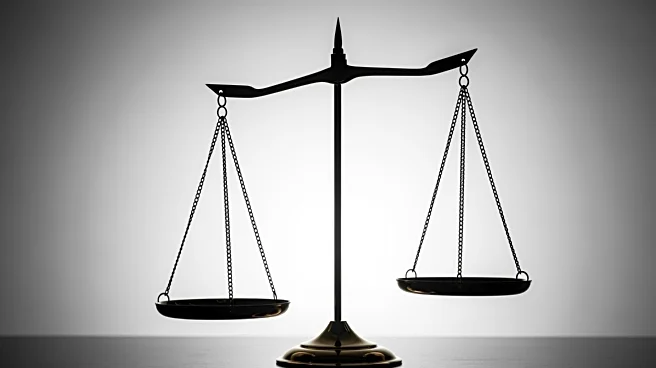What's Happening?
Former FBI Director James Comey's legal team has filed a motion requesting the Department of Justice to specify the false statements he allegedly made to Congress. The motion argues that the indictment against Comey is too vague, and seeks a detailed
explanation of the accusations. Comey is charged with making false statements and obstructing Congress, stemming from a 2020 Senate hearing where he was questioned by GOP Sen. Ted Cruz. The legal dispute centers on whether Comey's responses were misleading, with his attorneys claiming the questions were ambiguous. The case has prompted a request for the release of grand jury records, as Comey's team challenges the validity of the indictment.
Why It's Important?
The legal battle involving James Comey highlights ongoing tensions between political figures and the justice system. The case underscores the complexities of legal interpretations and the challenges of ensuring transparency in high-profile investigations. The outcome could have implications for how false statements are defined and prosecuted, potentially influencing future cases involving public officials. The request for clarity from the DOJ reflects broader concerns about accountability and due process, emphasizing the need for precise legal standards. As the case unfolds, it may impact public perceptions of the justice system and its role in political controversies.
What's Next?
The judge presiding over the case has scheduled a hearing to discuss the prosecutor's motion to review communications between Comey and his attorneys. This hearing could determine the admissibility of privileged material, influencing the direction of the case. The legal proceedings may prompt further scrutiny of the DOJ's handling of the indictment, potentially leading to adjustments in legal strategies. As Comey's team seeks clarity on the charges, the case may set precedents for how ambiguous questions and responses are treated in legal contexts. Stakeholders, including legal experts and political commentators, are likely to monitor developments closely, shaping the narrative around the case.
Beyond the Headlines
The case against James Comey raises broader questions about the intersection of politics and the justice system. It highlights the challenges of navigating legal standards in politically charged environments, emphasizing the importance of impartiality and fairness. The dispute over alleged false statements reflects ongoing debates about accountability and transparency, underscoring the need for clear legal definitions. As the case progresses, it may influence discussions on the role of the justice system in political controversies, prompting reflections on the balance between legal processes and political dynamics.















